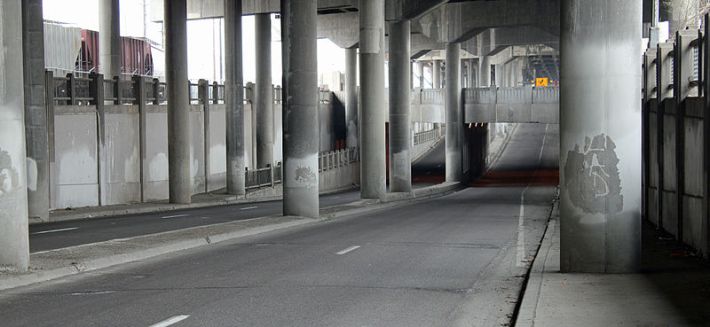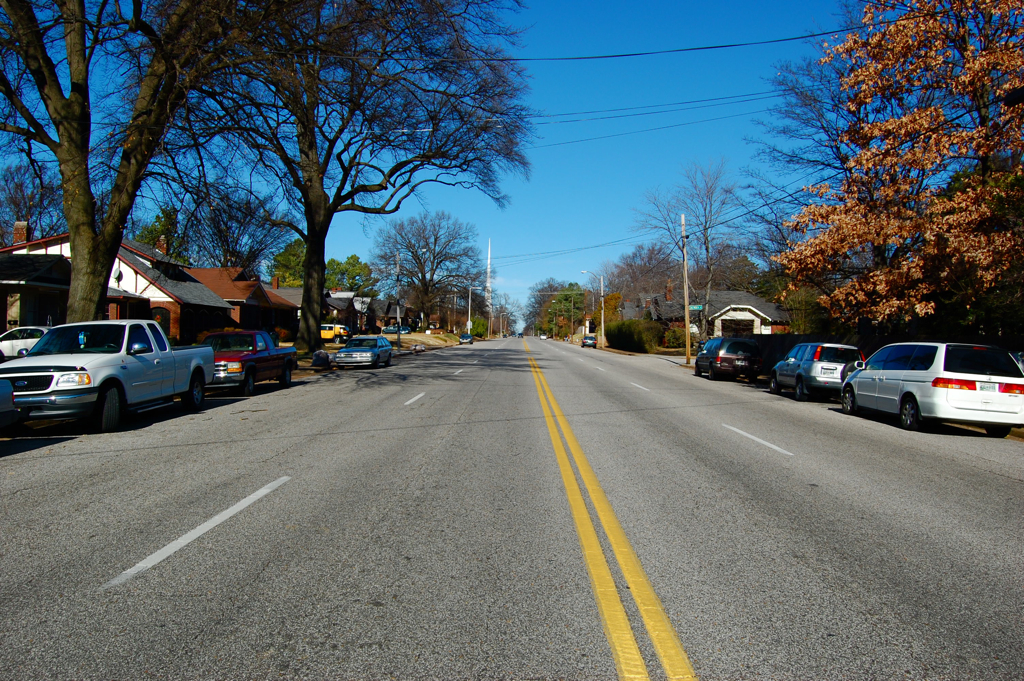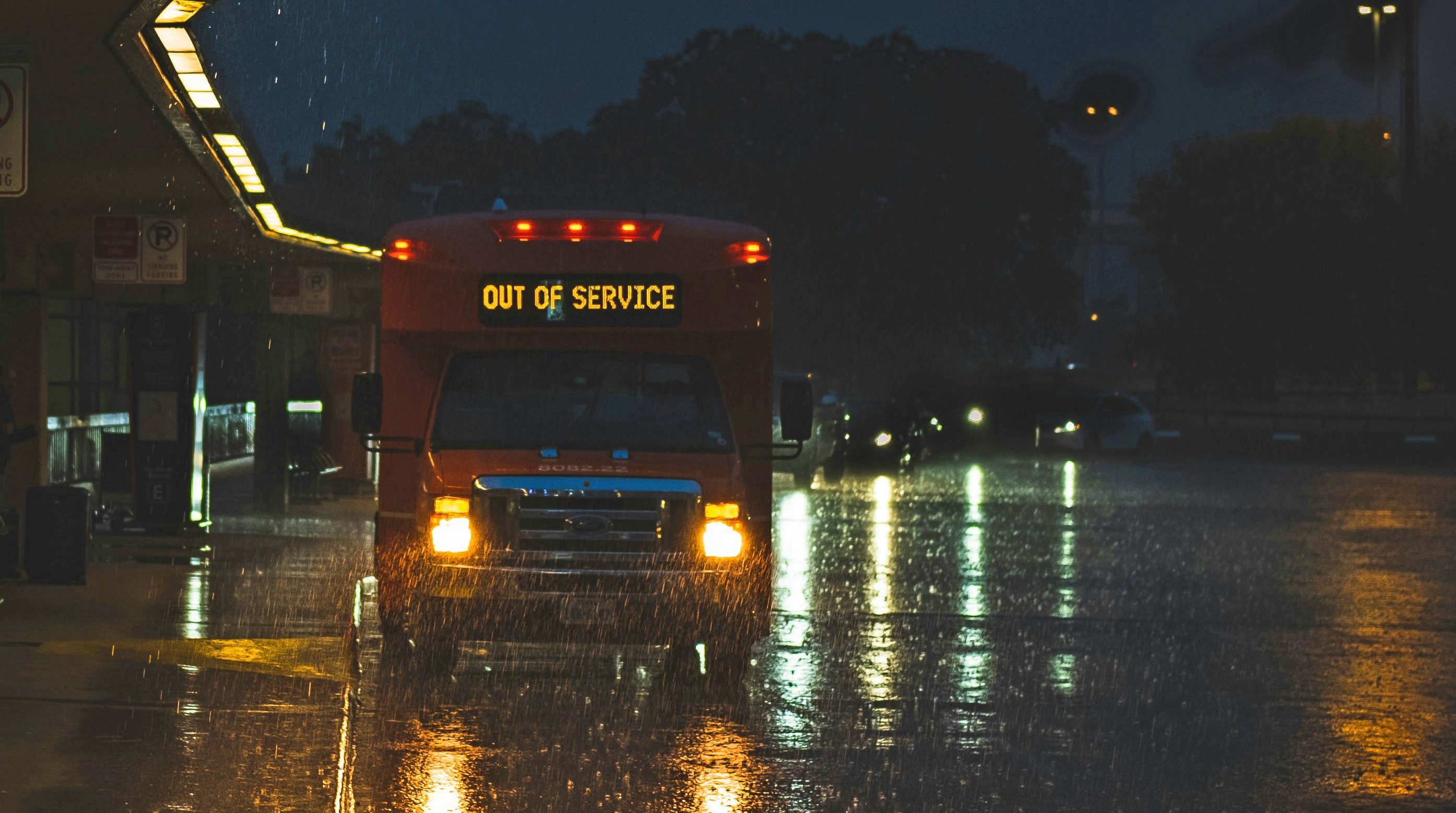“Ten lanes is not an option. A doubling of the current width of I-70 through Denver is not acceptable.”

That’s how Denver Auditor Dennis Gallagher began a letter [JPG and JPG] last week to the director of the Colorado DOT. “I can’t tell you how incensed I am that the state wants to expand I-70 to ten lanes through North Denver,” Gallagher said the next day on Facebook. “You should be too.”
The city has been studying options for replacing the 50-year-old viaduct for a decade. Gallagher’s preferred option is to reroute I-70 along I-270, though that plan would also involve road expansion. As it's laid out here [PDF] by a community group called Globeville Elyria-Swansea LiveWell, the re-routing would widen I-270 from two lanes to five or six lanes in each direction. (However, it would happen on "relatively level, open, undeveloped land," they say.) The projected cost of this expansion has dampened support for this proposal and even Gallagher admits “that is perhaps no longer a viable option.”
Gallagher’s second choice is the “city option,” which entails taking the highway below grade and covering it with an 800-foot-wide landscaped lid to reconnect the city, “making the neighborhoods real neighborhoods again.” The third option -- which CDOT backs -- would do that and also add two new tolled express lanes in each direction, resulting in a massive 10-lane highway. Here’s Gallagher’s brilliant explanation of his opposition to CDOT's $1.8 billion plan:
In an era in which freeway vehicle traffic is dropping; environmental and social trends are moving people away from a reliance on cars and trucks for transportation; other cities are choosing to eliminate freeways from their urban core; Denver’s population, particularly our growing population of Millennials and Seniors, is choosing not to drive or even have a driver’s license, it makes no sense to me and is not good public policy to build a ten-lane freeway when it likely will never be needed, may in point of fact be obsolete sooner rather than later, is destructive to the neighborhoods, and a wasteful expenditure of taxpayer dollars.
It’s encouraging to see an elected official -- especially one in charge of making government work better, as Gallagher is -- criticizing a road project not based on technicalities or price tags, but based on a reasoned analysis that transportation habits are fundamentally changing and laying new asphalt is an antiquated answer to modern mobility needs. “More pavement is not the answer to our transportation needs,” he says in his letter.
The freeway cap would reconnect the Globeville and Elyria-Swansea neighborhoods, which the freeway split years before. While healing that scar would be a boon to the neighborhoods, some of the city’s most isolated and overlooked, CDOT's plan calls for demolishing 50 homes.
Gallagher refers to these violations in his letter, where he takes on anyone who may think his concern is “unwarranted.”
I assure you it is not. The residents of these neighborhoods were treated as second class citizens when I-70 was originally routed through their neighborhoods; their hopes and dreams were ignored; their needs took a back seat to those who were only passing through Denver. That process cannot occur again. Widening a highway simply to allow for privately-managed toll lanes means wrecking and uprooting the homes of at least 50 families, and again that treats them as second class citizens.
The Denver City Council will consider a non-binding "proclamation" tonight to express the sense of the council in favor of reconnecting the communities, but it doesn't take sides on the proposal to widen the roadway.
It also won't address a proposal to add a second cap, which would eliminate an interchange at Steele Street and Vasquez Boulevard. That idea seems to be losing steam, as opponents have determined that asking truckers to exit half a mile farther down the freeway would be too much inconvenience.





